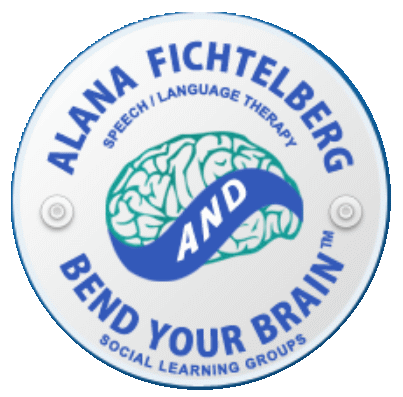"Bend Your Brain" Social Learning Groups
Social Learning
People are “hard-wired” to learn how to interact socially. Most children are able to figure it out intuitively, starting as babies relating to their parents. We use our social skills to make others feel comfortable, and it affects how they respond and react to us.
Children with social learning challenges, however, don’t easily grasp how to interact appropriately with others. While these children may score very high on intelligence tests, social skills are not simply a set of rules to memorize and then apply in any situation. Appropriate social behaviors depend on the social context – the particular situation, which other people are involved, and what they are thinking and feeling.
Social Learning Groups and Social Thinking®
In Social Learning Groups, students learn not just how to behave, but how to think socially. They learn that their actions affect how others think and feel and act towards them. They have to become good social observers, and figure out what others mean by interpreting what they say and do.
Social Thinking®, developed by speech/language pathologist Michelle Garcia Winner in the 1990’s, is a way to approach social difficulties. It is built on the premise that changing how one thinks will cause a change in social behavior.
Social Thinking® (and other related ideas) are the missing pieces to social difficulties. They teach:
- why and how you should say or do things, not just what to say
- thinking about others, and why it is important
- looking at the big picture (but not unimportant details)
- people have positive or negative thoughts about you, based on what you say or do, whether you want them to or not
Important social life-skills taught in Social Learning Groups include:
- Interpreting others’ body language, facial expressions, and tone of voice
- Sharing and taking turns
- Asking others for their opinions or their help
- Taking part in conversations – listening to what others are saying and responding appropriately
- How to think FLEXIBLY – using social behaviors based on social context
“Bend Your Brain” Social Learning Groups
In Social Learning Groups, students learn and practice these social skills with each other, through exercises and role-playing.
“Bend Your Brain” Social Learning Groups have:
- 2-4 students in a group
- Weekly 50 minute sessions, 10 minute parent meeting
- Individualized objectives for each child
- Students grouped based upon social thinking levels, NOT diagnoses
- Sessions based upon the needs of each individual group, NOT rote lessons
- Specific vocabulary taught for home and school use
- Parental involvement/parent workshops
- Outings such as parties, bowling, gardening, cooking, community work, going out to restaurants for fun and generalization
- Contact with school and other professionals is always available
- Parents are encouraged to suggest input for group lessons
Students for Social Thinking/Social Learning Groups:
- are aged 4 years – adult
- have near average to above average IQ
- may/may not already have a diagnosis
- are verbal
- have social learning difficulties
- may/may not score well on formal language testing
- are committed to attend groups consistently







